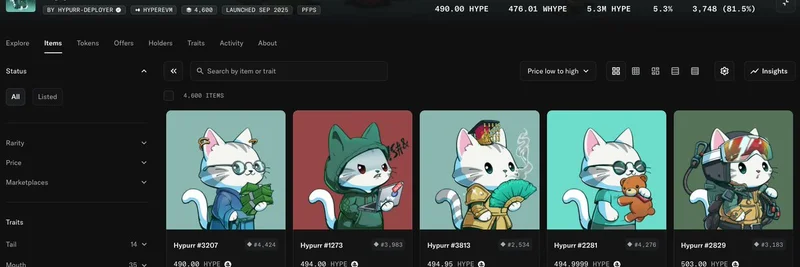In the fast-paced world of crypto, regulatory shifts can send shockwaves through the market. A recent tweet from crypto commentator MartyParty highlights a potentially massive development: the U.S. Securities and Exchange Commission (SEC) and Commodity Futures Trading Commission (CFTC) are looking into bringing perpetual contracts—those endless derivatives popular in offshore crypto spots—right here to U.S.-regulated platforms.
MartyParty, known for his sharp takes on crypto and macro trends, posted on X (formerly Twitter): "Yes!!! Offshore Perps will be offered onshore! Finally. They are listening." He goes on to explain the joint initiative announced on September 5, 2025, aimed at harmonizing regs to let U.S. traders access these tools safely. The highlight? A roundtable set for September 29, 2025, diving into perps, 24/7 trading, portfolio margining, and even DeFi protocols.
For the uninitiated, perpetual contracts (or "perps") are like futures but without an expiration date. They're a staple in crypto trading, letting folks bet on price moves with leverage—think amplifying your gains (or losses) without owning the asset. Right now, most of this action happens offshore on platforms like Binance, where U.S. users often skirt rules via VPNs. But that could change, bringing more legitimacy and oversight.
Why This Matters for Meme Tokens
Meme tokens thrive on hype, volatility, and quick trades. Perps are perfect for that—traders can go long or short on tokens like Dogecoin or newer viral ones without holding them. But offshore markets have been plagued by allegations of manipulation, with big players like Binance and market makers like Wintermute accused of shady tactics. MartyParty calls it out: "Binance/Wintermute manipulation is toast. Enjoy your last days of crime. We win."
If perps go onshore, expect stricter rules to curb pump-and-dumps or wash trading that often hit meme coins hard. This could level the playing field for retail traders, making it harder for whales to rig the game. On the flip side, as MartyParty warns, "Until this goes into effect expect VOLATILITY." Transition periods mean uncertainty, which in crypto-speak translates to wild price swings—prime time for meme token moonshots or crashes.
Broader Implications for Crypto and DeFi
This isn't just about perps; it's part of a push to keep crypto innovation stateside. Regulatory uncertainty has pushed devs and traders abroad, but harmonized rules could bring them back. DeFi protocols, which often mimic traditional finance with decentralized twists, might get clearer guidelines too. Portfolio margining—combining positions to reduce collateral needs—could make trading more efficient.
We've seen similar moves recently. Just last month, the CFTC kicked off a "crypto sprint" with the SEC to speed up guidance on spot crypto trading. Sources like The Block and Crypto Briefing confirm the buzz: this could reshape U.S. digital finance.
What Traders Should Watch Next
Keep an eye on that September 29 roundtable—outcomes could drop hints on timelines and specifics. In the meantime, meme token enthusiasts might want to brace for choppy waters. Volatility is the name of the game, but with onshore perps, it could come with better protections.
As always in crypto, this is education, not advice. Stay informed, trade smart, and let's see if this really toasts the manipulators.
For more on meme token trends and blockchain updates, stick with Meme Insider.




